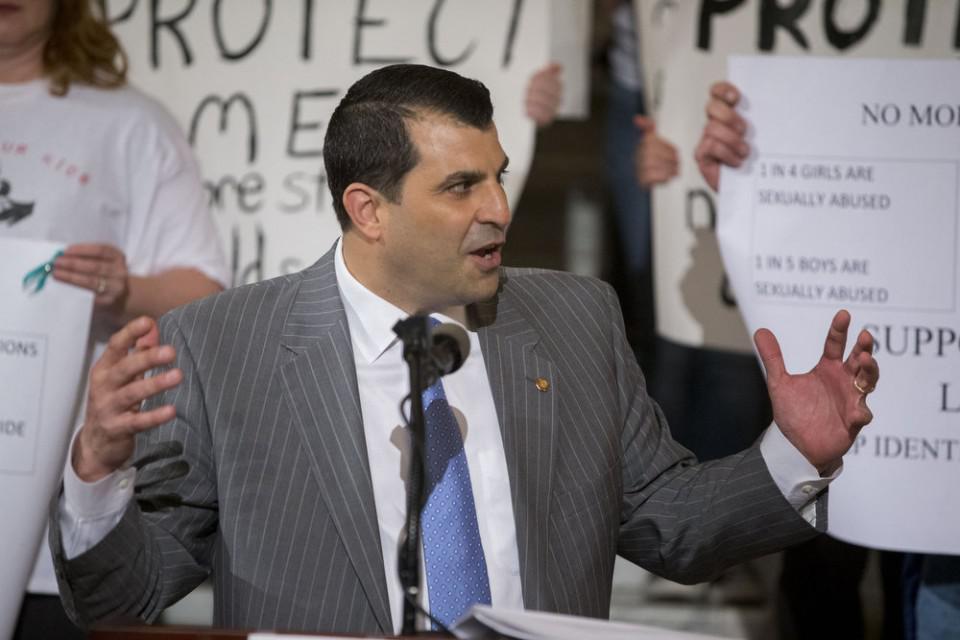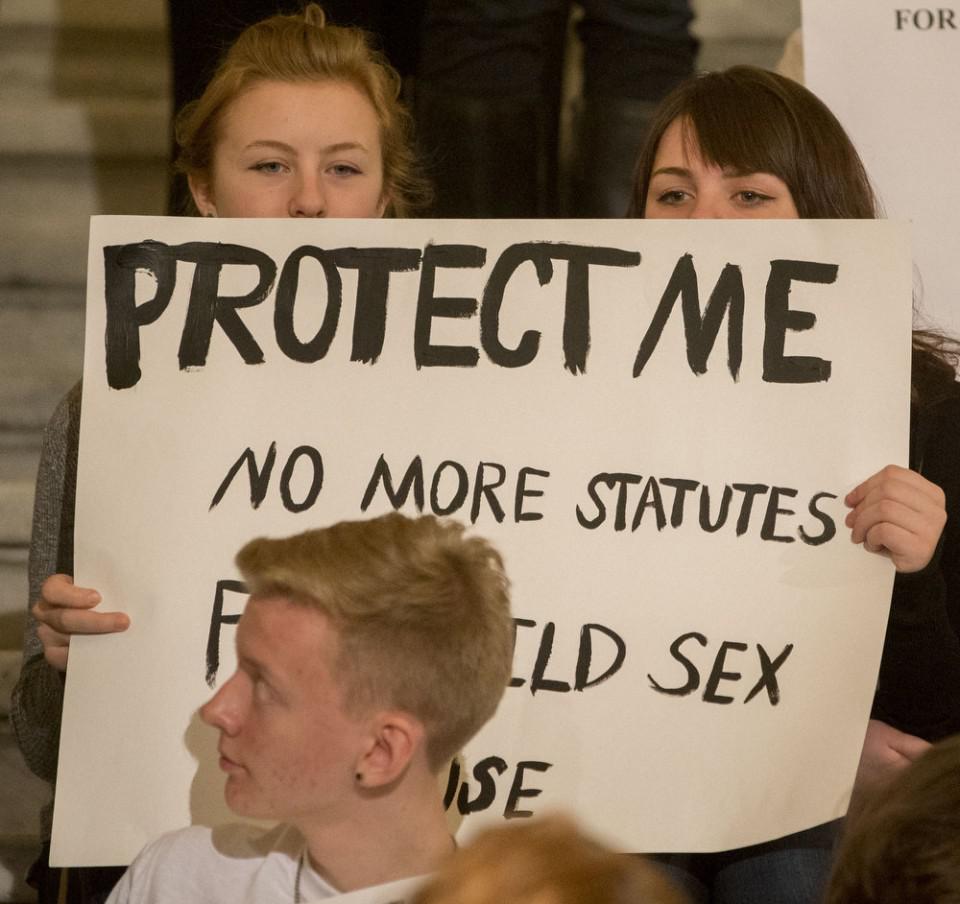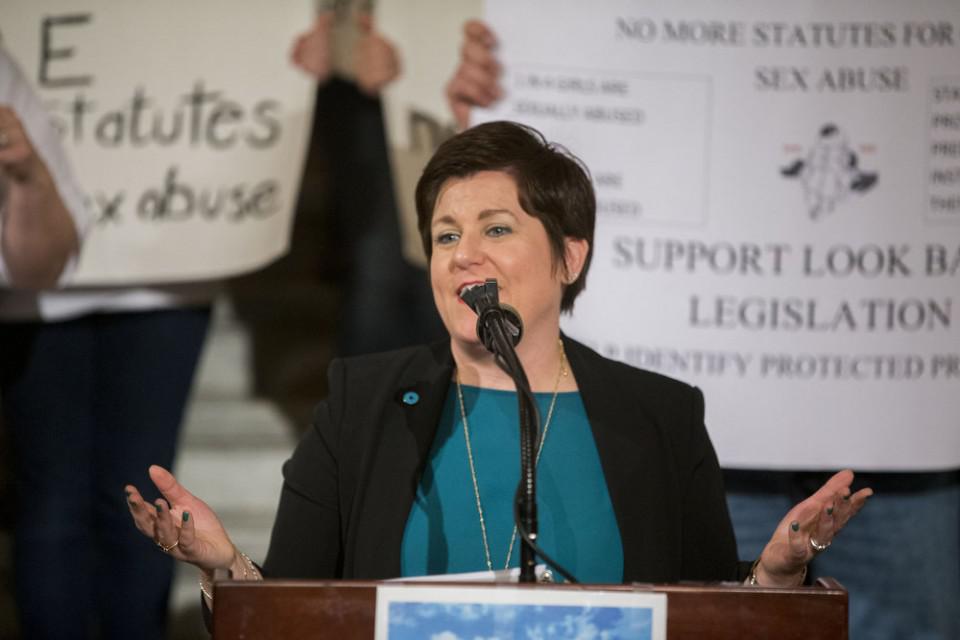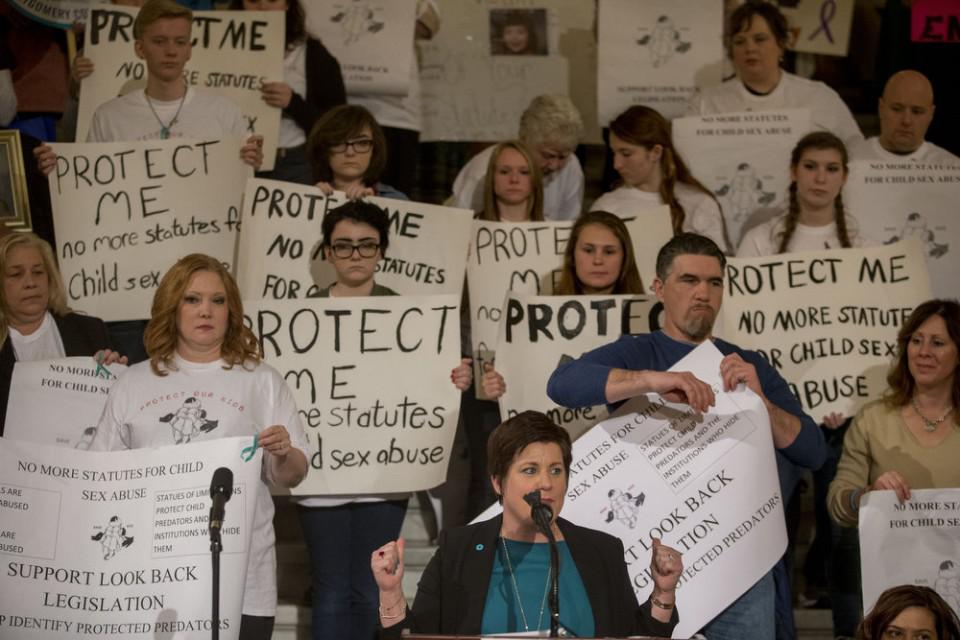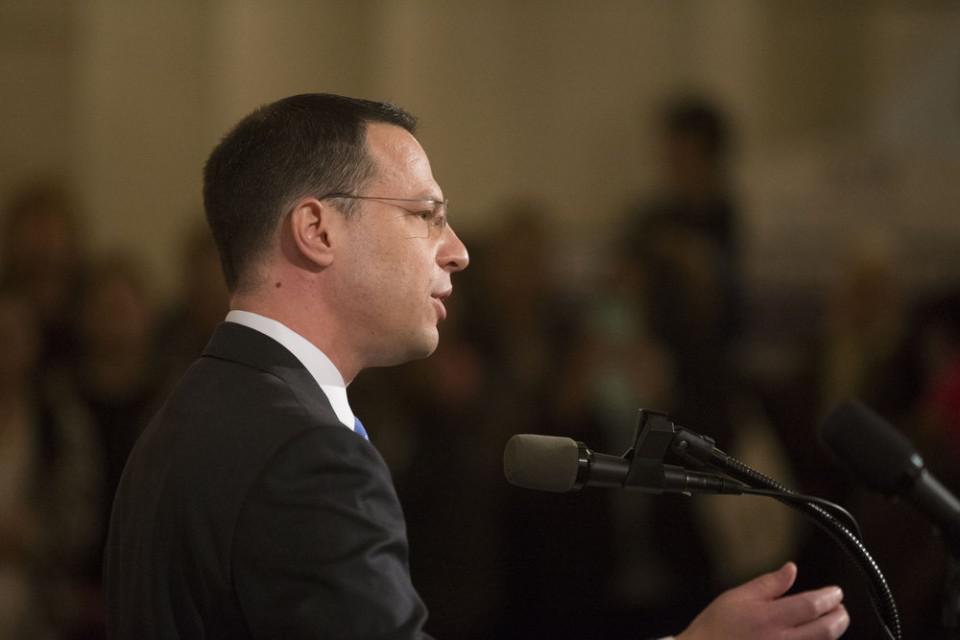|
House approves bill to reform child sex crimes laws; measure heads to Senate
By Ivey Dejesus
Following a poignant debate on the House floor, Pennsylvania lawmakers by an overwhelming majority voted Tuesday to advance a measure that would allow a generation of victims of child sexual abuse to seek justice. After years of failed efforts by advocates to reform laws applying to child sex crimes, House lawmakers voted 180-15 to approve a bill that will — if approved by the Senate — eliminate criminal statute of limitations on future child sex abuse crimes and amend civil statutes. Under the bill, the criminal statutes applied child sex abuse crimes would fall under the same parameters applied to murder: The statutes would never expire. Civil statutes would extend from the present age 30 to 50. The bill would also retroactively extend civil statutes that expired at a victim's age 30 to 50. For victims' advocates, Tuesday's vote stands as a watershed moment in the protracted effort to reform Pennsylvania's law. "The victims have waited long enough...it's time to vote," said Rep. Mark Rozzi (D-Berks), concluding an emotional final appeal to House colleagues to pass the measure. Rozzi twice during the debate session shared graphic accounts of his abuse and that of his friends at the hands of a predator priest. House Bill 1947, which was sponsored by Rep. Ron Marsico, R-Dauphin, in the House Judiciary Committee last week, sailed through the House amid the fallout of the recent grand jury report on the Catholic Diocese of Altoona-Johnstown. That report — almost identical to earlier investigations into the Archdiocese of Philadelphia — found widespread child sexual abuse at the hands of priests. The report also found church officials concealed the abuse and colluded with law enforcement to do so. The bill also would retroactively raise the age by which victims of past child sexual abuse can bring civil action against their abusers. Under current law, a victim sexually abused while younger than 18 has 12 years — or until age 30 — to file a lawsuit. House Bill 1947 extends the age limit by 32 years, to age 50. Rozzi, who was sexually abused at 13 by a priest, introduced the retroactivity measure to the bill. The bill also would waive the sovereign immunity extended to government entities and its employees. In general, government agencies and entities - such as school districts and their employees - are extended a measure of immunity from lawsuits for negligence. Marsico's bill would partially lift the sovereign immunity clause and would allow victims of child sex-abuse to sue state and local governments in cases of gross negligence. Damages would be capped at the same levels as applied under current law: Victims in child sex-abuse cases could receive up to $200,000 from state entities and $500,000 local government entities if they can prove gross negligence. The bill — which now goes to the Senate for a hearing and vote — would move Pennsylvania to the ranks of states that have in recent decades amended state laws to reflect deepening understanding of child sex abuse. Most experts agree that children who are sexually abuse almost never tell anyone of the abuse. Those who do require decades to work up the courage, often doing so long after statutes have expired. To date, approximately 37 states have eliminated criminal statute of limitations — at least for the top counts. Another eight have approved "windows" into the law — such as a two-year window — to allow victims for whom statutes have expired to seek civil action. An earlier amendment, introduced by Rep. Tom Murt (R-Montgomery/Philadelphia) would have activated a two-year window. That amendment was withdrawn Monday. House Bill 1947 moved relatively swiftly, considering a litany of failed reform legislation litter House records. Past legislation from Rozzi and Murt, as well as past representatives Lisa Bennington, Michael McGeehan, Louise Bishop all failed. During the debate, several House members launched efforts to postpone or object to some of the provisions of the bill. Rep. Russ Diamond, R-Lebanon, argued that he was troubled by the retroactive provision of the bill. He said it presented to him "a constitutional conundrum." Diamond argued that the bill violated the remedies clause, which extends vested rights to potential offenders once statutes expire. "We can't just say let the courts figure it out," Diamond said. The onus, he added, falls on the Legislature, which as a "co-equal branch" has a duty as well to ensure a law is constitutional. "Once we pass any law, the courts presume we acted constitutionally," Diamond said. Diamond introduced a motion to postpone the vote on the bill until May 17. In an emotional appeal, Rozzi said the arguments against constitutionality were inaccurate and outdated. He characterized the constitutional argument as a procedural motion intended "to do what has been done to victims of child sex abuse all along - attempt to deny them the justice they deserve." "These victims have been through enough," Rozzi argued emotionally. "They have been abused, lied to, their stories have been covered up." Diamond's motion was supported by several lawmakers, including Rep. Cris Dush, R-Brookville, who described himself as a "constitutionalist" who was getting "conflicting messages from back home based on constitutionality." Rep. Paul Schemel, R-Waynesboro, said the bill "flies in the face" of the recommendations of the Task Force on Child Protection, which was assembled in the wake of the Jerry Sandusky child sex abuse case. The task force recommended no changes to the statute of limitations. Schemel argued that the sovereign immunity waiver regarding the state would make public schools "ripe for the picking," potentially generating more than $43 million in potential liability. He warned to "expect a landslide of lawsuits." "Are you prepared to discuss that with your constituents...that you enabled this onslaught?" he asked, imploring his fellow House members "to think with your heads not merely your hearts." In the end, the bill, which is a tweaked version of what victims advocates had lobbied for, gained the support it needed to advance to the Senate. That chamber has had little to do with bills of this nature, so it more than likely will require hearings and committee meetings on the bill. A spokesman for Sen. Stewart Greenleaf, R-Montgomery, the Senate Judiciary Committee chairman, on Tuesday said the chairman would wait for the final language of bill before making comments. Contact: idejesus@pennlive.com
|
.
Any original material on these pages is copyright © BishopAccountability.org 2004. Reproduce freely with attribution.
